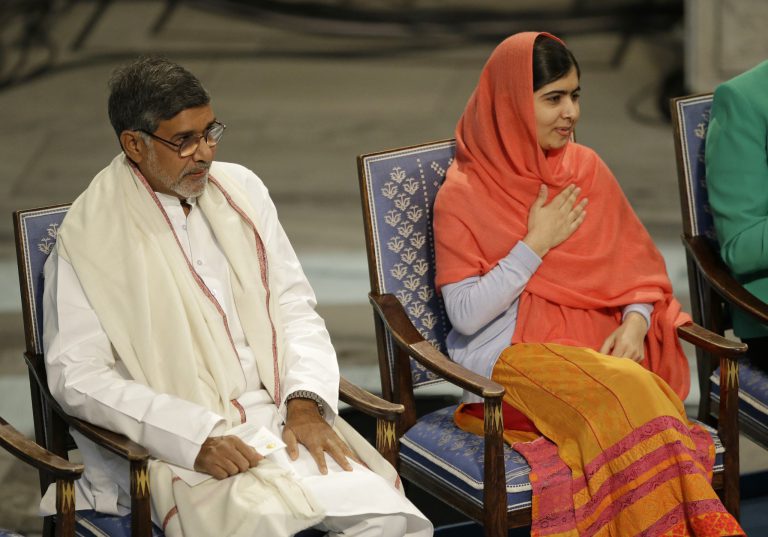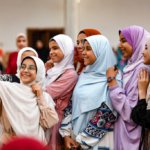
The two co-winners of the 2014 Nobel Peace Prize addressed world leaders and education policymakers at the World Education Forum in South Korea on Thursday, urging them to focus on the key issues of education access for girls and students’ mental and emotional well-being as they set global education targets for the next 15 years.
Malala Yousafzai, the Pakistani teenager who has campaigned for education rights for girls and became a household name after she survived an assassination attempt by the Taliban in 2012, encouraged the representatives of more than 160 countries gathered at the forum to ensure their nations met the goal of providing 12 years of free education for all children, saying this was particularly crucial for girls.
“Every day my sisters all over the world are fighting to take their place in the classroom,” Malala said in a statement. “They want to be the best they can be and give back to their communities and the world. This means they must have the opportunity to receive 12 years of quality education.”
The leaders gathered at the forum, held in Incheon, South Korea, agreed to include a stipulation that countries should provide 12 years of publicly-funded primary and secondary education to all children, with at least nine years being free and compulsory. This objective will be included in the overall education goals, which will be ratified at the United Nations General Assembly in September, and will become part of the Sustainable Development Goals, replacing the previous Millennium Development Goals.
While 17-year-old Malala focused on education access and gender equality, her Nobel Peace Prize co-winner, Indian children’s rights activist Kailash Satyarthi, had words for the Forum host nation, South Korea. Satyarthi urged the country, which tends to perform extremely well on global education achievement rankings, not to forget that education should also encourage happiness and community engagement among students.
“Education systems everywhere, including Korea, have to be more child-friendly. It should be easy and friendly for young people to approach,” he said during a joint interview at the World Education Forum 2015.
The high quality of education in South Korea has helped spur the country’s growing economy, but has often come at the cost of student happiness, said Satyarthi.
Korean students often face intense pressure to perform well in school, and many devote hours of their days to studying for achievement tests or university entrance exams.
According to a report published this month by the Korea Bang Jeong Hwan Foundation and Yonsei University, Korean students’ happiness index was 19th among member countries of the Organisation for Economic Cooperation and Development (OECD), putting them below the OECD average.
According to Satyarthi, these negative emotions are preventing students from enjoying the true purpose of education.
“The objective of education is basically to discover the human quality and potential of every single human being, community, and the entire world. Eventually this potential should be transmitted to the betterment of the world. Helping each other,” he said.
“Many countries are poor but happy. Their social connectivity is high, which gives them a sense of security and cooperation. They are closer to each other and more open to each other,” he said
He suggested that students – and the educational system – should focus less on competition and rankings, and instead prioritise creativity and community and global engagement.
“Creativity and competition should be complimentary. There should be a competition to see who can come up with a more creative idea. If a competition pushes back others, then it is wrong,” Satyarthi said.
Like this? You’ll love these…
Nobel winner Malala speaks out
Developing countries still lag decades behind in global education








